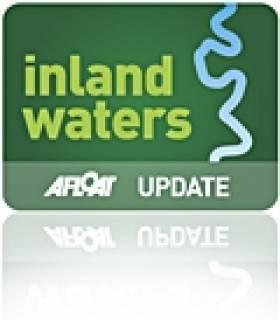Displaying items by tag: Kevin Flannery
Optimism is not a sentiment one associates with the Irish fishing industry at the moment – but Kerry based Dr Kevin Flannery does feel there are some reasons to be cheerful.
Flannery, a rare fish expert, former fisheries officer, chair of the FLAG South-West and founder of Mara Beo aquarium in Dingle, is a member of the Government’s seafood task force.
Set up after Brexit by Minister for Marine Charlie McConalogue, it has a tight time frame, an ambitious remit and 24 members.
Flannery spoke to Wavelengths about why it has to work.
As part of an EU-UK agreement to cut the value of fish caught by EU boats in UK waters by 25%, Ireland became the largest loser among the eight coastal states involved.
The Irish fleet loses 15% of the overall value of Irish fish quotas compared to 2020 – as in a 26 per cent cut in Ireland’s quota share of mackerel, and a 14 per cent cut in prawns.
An EU audit which has resulted in a withdrawal of Ireland’s derogation on weighing fish away from piers, and a controversial penalty points system, have contributed to a “perfect storm” for the industry.
 Part of last week's Cork Harbour Trawler flotilla of the Irish South and West Fish Producers’ Organisation Photo: Bob Bateman
Part of last week's Cork Harbour Trawler flotilla of the Irish South and West Fish Producers’ Organisation Photo: Bob Bateman
Last week, over 60 vessels steamed into Cork harbour as part of an Irish South and West Fish Producers’ Organisation campaign, and handed in a letter to Taoiseach Micheal Martin’s constituency office seeking direct talks.
Flannery believes the seafood task force must not only address the crisis caused by Brexit, but it must be retained to prepare Ireland’s case for a more equitable review of the EU Common Fisheries Policy – the next review being due in two years’ time.
He is critical of the EU’s failure to insist on economic links between vessels and quota allocation. As an example of this, he cites the Spanish purchase of French vessels to gain access to the French quota of hake in these waters.
Flannery has other ideas. He believes fishing should be part of the third level education syllabus, but the government must also take action to ensure it is a viable career prospect.
“They are taking out 30 million euro boats ...these people should be recognised for their skills by the Higher Education Authority,” he says.
Renewable energy developers, the environmental NGOs and the fishing industry must also be facilitated with a mechanism by the State to work together, he says.
The fragmented approach by the Government to managing the marine sector – such as the fact that the Department of Housing has responsibility for marine protected areas (MPAs) – must also be addressed, he says.
Hear his interview with Wavelengths below
'Natural Prawn Killers' Pose Threat to Irish Marine Life
Irish boatowners and fishermen on inland waterways have been urged to remain alert to the prospect of so-called 'killer shrimp' invading Ireland's waters.
The dikerogammarus villosus shrimp - which has spread aggressively throughout Europe in the past decade and was discovered in England last year - could have "dire consequences" for the biodiversity of Ireland's rivers and lakes.
Kevin Flannery of Dingle Oceanworld told the Sunday Independent: "These invasive species are very aggressive and take over from the native species - and change the whole environment and ecosystem."
The killer shrimp is larger that its native cousin, making it a more deadly predator. It is known to attack insect larvae, baby fish and native shrimp.
"The shrimp will eat the primary source of food for the trout and salmon and other indigenous species which have been here for billions of years," said Flannery.
The killer shrimp has spread mainly by attaching to boat hulls at the larval stage, promping Flannery to urge all fishermen and boatowners to disinfect their vessels before using them in Irish waterways.
























































